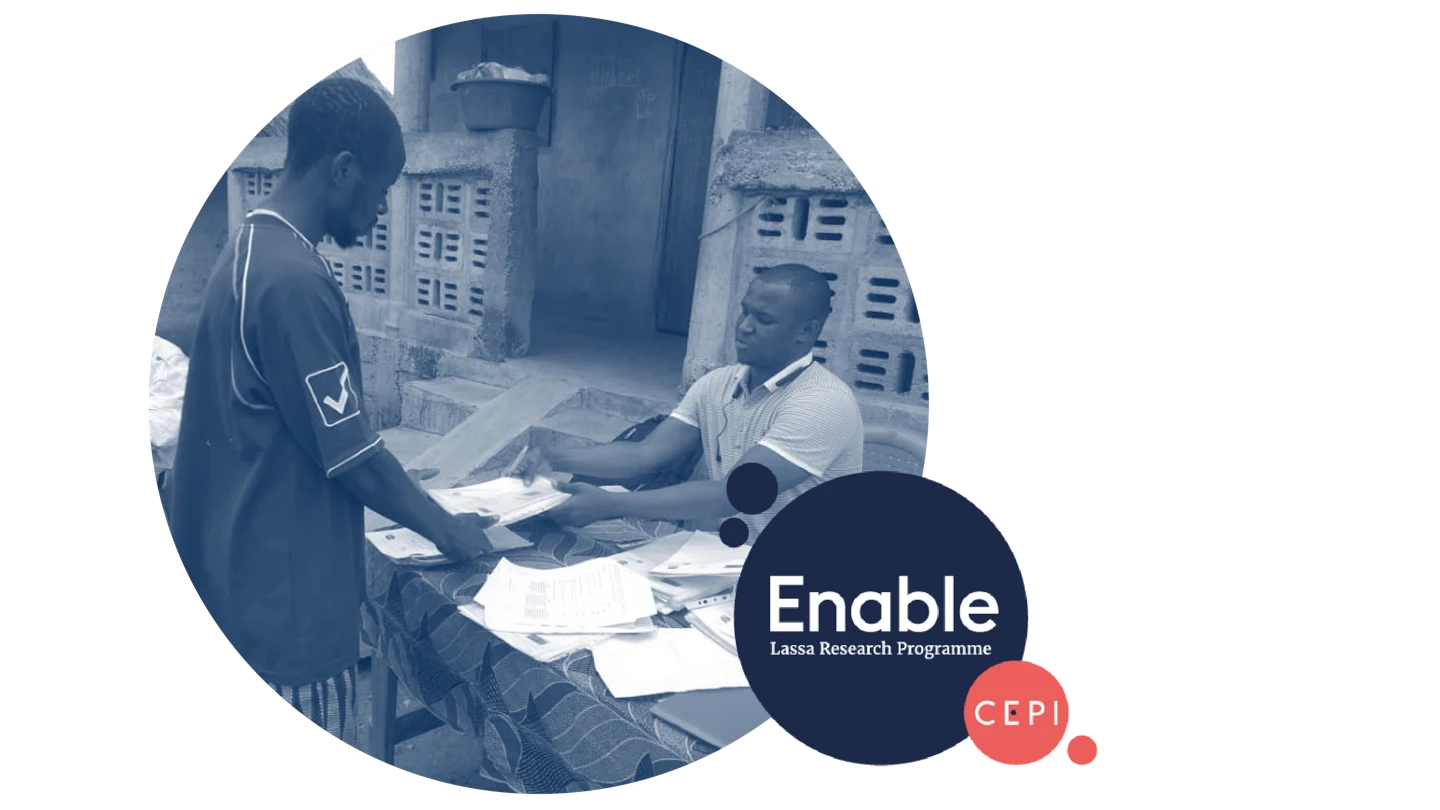Enabling science
From biological standards to preclinical models, CEPI supports enabling science activities to accelerate the development of safe and effective vaccines.

Standardising vaccine development
Assays, standards and reagents are used by scientists around the world to test vaccine candidates. Standardising how these tests are applied is crucial for generating reproducible and relevant data to support and expedite vaccine licensure, especially when different candidate vaccines are being compared.
CEPI’s Laboratory Research and Innovations Team has established a Working Group for Standardizations and Assays together with WHO. We have supported the development of International Standards for the viruses behind Lassa fever, MERS and COVID-19. We are developing other tests, known as assays, and international standards for other diseases. The team also work closely with FIND and PATH to identify gaps in the creation or validation of diagnostics for our priority pathogens.
Biospecimen Sourcing Initiative
To tackle current gaps in the methods used to collect samples from survivors of infectious disease outbreaks, CEPI and PATH have joined forces to create the Biospecimen Sourcing Initiative.
The initiative aims to break ground by developing harmonised global guidance to provide consistent and rapid acquisition, storage and sharing of survivor samples in a timely manner. In doing so, it aims to make outbreak material ready to develop assays and standards in a matter of weeks, compared to the six months or more it currently takes, thereby making a vital contribution towards the 100 Days Mission.
This is especially important when outbreaks may be short and unpredictable and specimen gathering must be completed in a limited timeframe.


CEPI’s Centralised Laboratory Network
Launched in 2020 in response to the COVID-19 pandemic, CEPI’s Centralised Laboratory Network is the world’s largest network of vaccine testing laboratories. It aims to support CEPI-supported developers and others to evaluate CEPI priority-pathogen vaccines against common protocols to ensure alignment and information sharing when identifying the most promising candidates. To date, the network has served over 60 vaccine developers to assess their vaccines candidates at all stages of developments, processing over 120,000 samples.
In the event of an outbreak of infectious disease, having an established global clinical laboratory network in place will facilitate faster data readouts by harmonising analyses and reducing sample shipping times due to its worldwide footprint. To that end and in support of the 100 Days Mission, CEPI continues to expand the number and global footprint of laboratories within its centralized lab the network.
In 2024, the Global Centralised Laboratory Network Advisory Council was created to enable our network facilities to be more actively involved in critical decision-making processes. This includes collaborating with other facilities to address scientific and logistic challenges, facilitating assay development, validation and transfer, and simplifying processes to meet quality regulatory standards.
In early 2025, the Institut National de la Recherche Biomédicale (INRB) in the Democratic Republic of Congo became the first 'collaborative member' of CEPI's Centralised Laboratory Network working on one specific pathogen, mpox. Their work is helping CEPI and partners to quickly and effectively respond to the ongoing outbreak in the country and other regions.
Tracking disease outbreaks
We support our vaccine developers to conduct epidemiological studies to gain greater insights on the spread, prevalence, and impact of our priority pathogens. We also support cutting edge AI technology to help predict which viral families are likely to harbour the next Disease X.
These data can support and inform CEPI’s investments in vaccine candidates, strengthen local clinical research capacity, and guide national governments in their public health responses to emerging infectious disease outbreaks.
Our Epidemiology and Data Science Team also oversees vaccine effectiveness studies, and run computer modelling studies, working closely with other teams to help quantify the health and economic impacts of the 100 Days Mission.

Enable: The largest ever Lassa fever research study
In 2019, CEPI and partners launched Enable, the largest-ever Lassa fever research study set up to provide a more accurate picture of the disease burden in West Africa and help inform outbreak preparedness efforts, including the development of a Lassa vaccine.
Over 23,000 participants have been enrolled by local partners in Benin, Guinea, Liberia, Nigeria, and Sierra Leone.
In October 2024, CEPI announced the expansion of Enable, with a new year-long pioneering study aiming to improve scientific understanding on how commonly Lassa fever occurs, how rates of infection and symptoms vary across selected locations, ages, sex and previous exposure to the virus, and the extent of post-infection symptoms like hearing loss. Scientists will also look at how often people may be co-infected with Lassa fever and malaria since co-infections may complicate the clinical course of each disease.
Insights gained on the diversity of disease symptoms will enhance our understanding of Lassa fever, categorised into mild, moderate or severe cases. This information will be crucial in guiding where and how future late-stage vaccine trials are conducted and determining priority groups for receiving the Lassa vaccine once it becomes licensed in the coming years.

Establishing preclinical models of infection
Preclinical models play a crucial role in vaccine and drug development. CEPI has established a network of high-containment laboratories for testing vaccines against our priority pathogens in preclinical models. CEPI commissions the laboratories to establish preclinical models, data from which are then made available to CEPI-supported vaccine developers to rapidly assess their vaccine candidates. These data can also be provided to regulators as part of their broader assessment of potential vaccine candidates. The network has mainly focused on preclinical models for COVID-19, and is expanding its work to include Chikungunya virus, Lassa virus, and Nipah virus, with others to follow.
Vaccine safety
CEPI and its partners are working to support developers in producing vaccines that are as safe and effective as possible. Since 2019, CEPI and the Brighton Collaboration have led The Safety Platform for Emergency vACcines (SPEAC). SPEAC aims to provide the best available scientific evidence on the safety of CEPI-funded vaccines to support timely benefit-risk assessment globally, with a focus on low- and middle-income countries.
SPEAC is now also working to deliver world-leading vaccine safety guidance and support for the 100 Days Mission, the global goal to compress the development of new vaccines against pathogens with pandemic potential to just 100 days.

Regulatory affairs
Regulatory agencies are responsible for ensuring vaccines and other medical countermeasures are evaluated properly and meet necessary high standards of quality, safety, and efficacy. CEPI’s Regulatory Affairs Team provides support and oversight to CEPI vaccine programmes, ensuring that developers have built regulatory strategies into their plans to support potential approval of their products. The Team also works with regulators worldwide, identifying and helping to overcome regulatory challenges, and supporting efforts to align regulatory requirements where appropriate.

World-first vaccine adjuvant library
CEPI has launched the first-ever library of adjuvants that can be used to make more potent vaccines against known or new epidemic and pandemic threats.
The UK’s Medicines and Healthcare products Regulatory Agency (MHRA) hosts the repository of 25 vaccine-enhancing adjuvants that acts as a matchmaking service, helping vaccine developers select the best vaccine-adjuvant combination to make their vaccines more potent and effective. The adjuvants have been shared with the MHRA by leading research institutes and medical companies around the world.
The Adjuvant Library will first be tested through a pilot study before opening up more widely to CEPI-funded vaccine developers in late 2025.
For further information or to express your interest in using the Adjuvant Library, please email [email protected].
